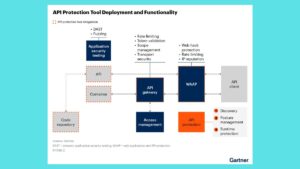The 5 Deadly Sins When Hiring a Tech Leader—Is Your Startup At Risk?

Hiring the right tech leader is one of the most crucial decisions a startup can make. Whether you’re building a new product or scaling an existing one, your tech leader will be responsible for setting the technical vision, driving innovation, and leading your engineering team to success. However, many startups fall into common pitfalls when hiring a tech leader, which can result in missed opportunities, technical debt, and even jeopardize the long-term growth of the company.
To help you avoid these pitfalls, we’ve compiled the five “deadly sins” that startups often commit when hiring a tech leader. Are you making any of these mistakes?
1. Relying Solely on Technical Expertise
It’s easy to assume that the best tech leader is the one with the most technical knowledge, but technical expertise alone is not enough. A tech leader needs a well-rounded skill set that goes beyond coding or systems architecture.
- The Sin: Focusing only on the candidate’s technical prowess without considering their leadership, communication, and management skills.
- The Risk: While technical expertise is essential, it’s equally important for a tech leader to possess strategic thinking, the ability to collaborate with cross-functional teams, and the capacity to scale and mentor others. Without these skills, a brilliant coder may struggle to lead a team, align technical goals with business objectives, or inspire innovation.
What to do: Look for candidates who have a mix of strong technical skills and leadership qualities. Assess their ability to communicate with non-technical stakeholders, inspire a team, and make decisions that align with your startup’s mission.
2. Ignoring Cultural Fit
Every startup has its own unique culture. Hiring someone with a stellar resume who doesn’t align with your company’s values, work style, or mission can lead to friction within the team. A tech leader must not only be able to manage technical challenges but also fit into your startup’s culture and contribute to building it.
- The Sin: Prioritizing qualifications over cultural compatibility, especially in a fast-growing startup environment.
- The Risk: A mismatch in culture can lead to employee dissatisfaction, disengagement, and even attrition. Moreover, cultural misalignment could cause friction between the tech leader and other department heads, hindering collaboration and innovation.
What to do: During the interview process, assess a candidate’s cultural fit. Ask them about their work style, how they build relationships with cross-functional teams, and how they’ve navigated startup environments before. Look for a candidate who understands and embraces your startup’s core values.
3. Overlooking Soft Skills
The technical world is complex and often fast-paced. While technical expertise is paramount, a tech leader’s ability to manage stress, adapt to change, and navigate interpersonal challenges is equally important.
- The Sin: Neglecting to assess a candidate’s soft skills such as empathy, emotional intelligence, and conflict resolution.
- The Risk: Tech leaders without strong soft skills may struggle to handle high-pressure situations, manage conflict within the team, or create a positive, inclusive work environment. In the worst-case scenario, this can lead to a toxic culture or high turnover.
What to do: Look beyond the candidate’s technical qualifications and evaluate their soft skills. Ask situational questions that give insight into how they handle challenges, deal with conflict, and foster team collaboration. Consider having other team members meet with the candidate to see how they interact with people from different departments.
4. Failing to Assess Scalability Experience
Startups grow fast, and so does their technology stack and infrastructure needs. A tech leader who excels in building small-scale products or managing small teams may not have the experience to scale technology effectively as the company grows.
- The Sin: Hiring a candidate who lacks experience in scaling both the technology and the team for rapid growth.
- The Risk: Without a leader who understands the complexities of scaling, your startup could face bottlenecks in development, product delivery, and technical debt that hinder progress. Problems like poor architecture decisions, security vulnerabilities, and inefficient processes may arise as the company grows.
What to do: Ensure that your tech leader has experience scaling both systems and teams. Ask them about their experience growing teams, transitioning from prototype to production, or handling large-scale infrastructure. They should be able to speak about the challenges of scaling and demonstrate a strategic mindset.
5. Not Setting Clear Expectations
Without a clear understanding of the role and expectations, even the most talented tech leaders can struggle to meet objectives. In startups, where roles are often fluid and priorities shift quickly, clarity is key.
- The Sin: Not establishing clear, measurable goals or aligning the tech leader’s role with the company’s vision and needs.
- The Risk: Ambiguous expectations can result in misaligned priorities, frustration, and failure to meet critical objectives. A tech leader may end up focusing on the wrong initiatives or missing out on important milestones.
What to do: From the outset, establish clear, measurable goals and expectations for the tech leader. Define their role in the context of your startup’s current and future needs, and ensure they have the resources and support they need to succeed. Keep lines of communication open to adjust priorities as the startup evolves.
Conclusion: Avoiding the Pitfalls of Hiring a Tech Leader
Hiring a tech leader is one of the most important decisions your startup will make. To ensure that you find the right person, avoid these five deadly sins:
- Don’t rely solely on technical expertise.
- Don’t ignore the importance of cultural fit.
- Don’t overlook soft skills.
- Don’t hire someone without scalability experience.
- Don’t leave expectations vague or unclear.
By taking a holistic approach to your hiring process and considering both technical and leadership capabilities, you’ll be better positioned to find a tech leader who can drive innovation, foster growth, and lead your startup to success.
Hiring the right tech leader isn’t just about filling a role—it’s about finding someone who can propel your company forward, adapt to change, and deliver results. Are you ready to make the right hire?






